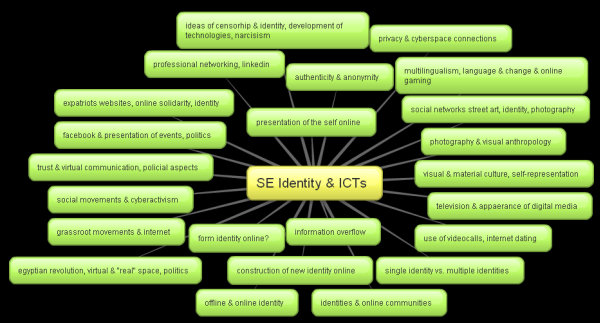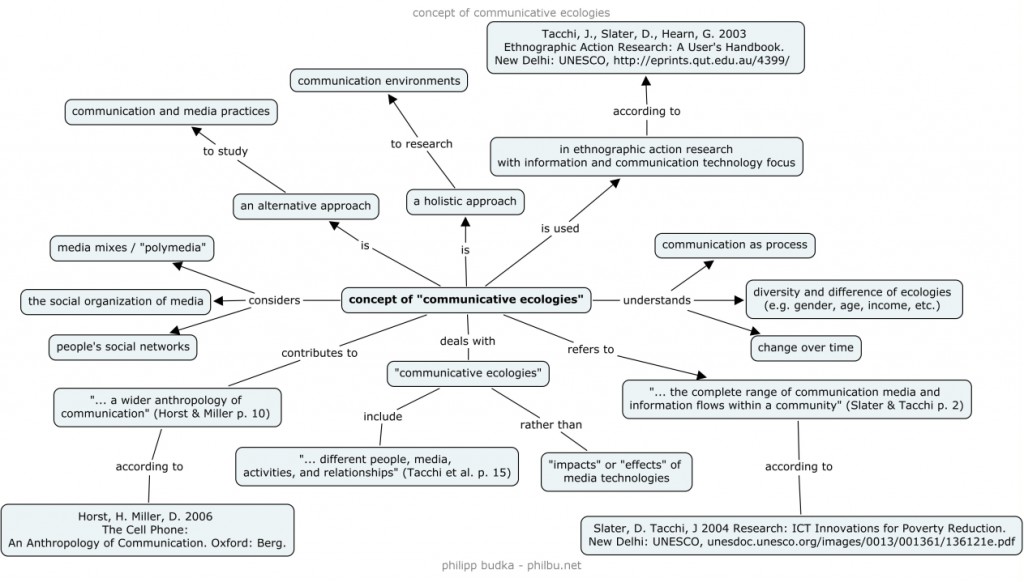Literature on online ethnography collected through the EASA Media Anthropology Network Mailing List
to contribute to this collection go to the network’s project wiki: http://www.media-anthropology.net/index.php/projects
Bell, David, and Barbara M. Kennedy 2000 The Cybercultures Reader. London : New York: Routledge.
Boellstorff, Tom: Coming of Age in Second Life, 2008. The volume, which is an ethnography by itself, has a full chapter on methods in online research.
Buchanan, Elizabeth A. 2004 Readings in Virtual Research Ethics : Issues and Controversies. Hershey, PA: Information Science Pub.
Hine, C. (2008). Virtual Ethnography: Modes, Varieties, Affordances. In Fielding, Lee, Blank (eds) THE SAGE HANDBOOK OF ONLINE RESEARCH METHODS.
Hine, C. 2005 Internet Research and the Sociology of Cyber-Social-Scientific Knowledge. Information Society 21(4):239-248.
Hine, Christine 2005 Virtual Methods : Issues in Social Research on the Internet. Oxford, UK ; New York: Berg.
Hine, Christine 2000 Virtual Ethnography. London ; Thousand Oaks, Calif.: Sage.
Littleton, K., and D. Whitelock 2004 Guiding the Creation of Knowledge and Understanding in a Virtual Learning Environment. Cyberpsychology & Behavior 7(2):173-181.
Markham, Anette: Internet Research. In Silverman, D. (Ed.). Qualitative Research: Theory, Method, and Practices, 3rd Edition. London: Sage.
Draft: http://www.markham.internetinquiry.org/writing/silverman2011draft.pdf
Markham, Anette: The politics, ethics, and methods of representation in online ethnography. In Denzin, N. & Lincoln, Y. (Eds.). Handbook of Qualitative Research, 3rd Edition (pp. 793-820). Thousand Oaks CA: Sage
Draft here: http://markham.internetinquiry.org/writing/denzingalleyproofs.pdf
Marshall, Jon (2010): Ambiguity, Oscillation and Disorder: Online Ethnography and the Making of Culture
http://epress.lib.uts.edu.au/ojs/index.php/mcs/article/view/1598/1859
Nardi, Bonnie: Night Elf Priest, prolog and first two chapters. Bonus: They can read it online for free: http://www.digitalculture.org/books/my-life-as-a-night-elf-priest
Pauwels, L. 2005 Websites as Visual and Multimodal Cultural Expressions: Opportunities and Issues of Online Hybrid Media Research. Media Culture & Society 27(4):604-613.
Preece, J., and D. Maloney-Krichmar 2005 Online Communities: Design, Theory, and Practice. Journal of Computer-Mediated Communication 10(4).
Schaap, Frank 2002 The Words that Took Us there : Ethnography in a Virtual Reality. Amsterdam: Aksant Academic Publishers.
Silver, D. 2004 Internet/cyberculture/digital culture/new media/fill-in-the-Blank Studies. New Media & Society 6(1):55-64.


